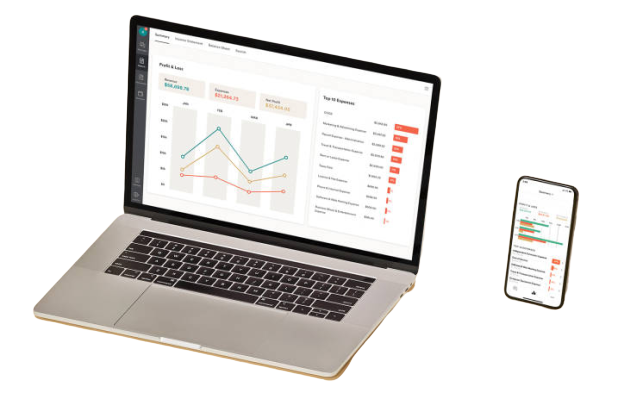
The Importance of Bank Reconciliations for Small Businesses
In a perfect world, what’s left in your business bank account at the end of the month would align with what your company spent or earned that month. That doesn’t always happen, though, due to delays in payment processing or deposits. A discrepancy between your business accounts and your business records could lead to overdrafts or penalties.
That’s where bank reconciliation can come in handy. Bank reconciliation is a way to track cash flow in a small business. It compares your account statements to your company’s financial records, letting you detect any issues and make corrections as needed.
What Is a Bank Reconciliation?
Bank reconciliation is a process through which you ensure your company’s bookkeeping and balance sheets align its financial statements and banking records. You can reconcile your business’s records with its checking account, credit card statements and any other transaction account statements.
Bank reconciliations are an essential component of small business accounting practices. They’re particularly useful for any businesses that use the accrual method, where you record expenses and revenues when they’re completed or earned, not when you make or receive payments.
When you compare your account statements, make a note of any discrepancies. It could be that you or a team member didn’t record a purchase when it was made, or there could be another issue going on, such as an employee using a company’s card to make unauthorized purchases. You can also use the bank reconciliation process to ensure your business has not been overcharged or incorrectly charged by the bank or for any goods or services.
To be effective during the bank reconciliation process, you should include all transaction accounts your business uses, including PayPal and Venmo accounts, credit and debit cards.
Why Are Bank Reconciliations Important?
Bank reconciliations are crucial for any small business to implement regularly. Some of the reasons to complete a bank reconciliation include:
They Help You Keep Tabs on Your Spending
You may identify places where your business is overspending during the reconciliation process. For example, you might have active subscriptions you no longer need or duplicate accounts. You might also discover that the cost of certain services or products has increased over time, and your company might be better served by trying to find a less expensive option.
Comparing your business transactions to your accounts allows you to easily track money as a small business and see where you can save.
They Let You Keep Tabs on Accounts Receivable
When you reconcile your accounts, you can see which vendors or clients have fallen behind on payments and who is current on their accounts. If cash flow is a concern, reviewing your accounts receivable can give you an idea of where you might need to make adjustments.
For example, if you are having trouble making ends meet, it could be that you’re giving clients too much time to pay. You might consider reducing the payment period, such as switching from Net-60, where the client must pay within 60 days after receiving the invoice, to Net-30 terms, where they must pay within 30 days.
They Help You Spot Fraud
Detecting fraud in a small business is easier when you review your bank and transaction statements monthly and compare them to your business records. Employees might be using their expense accounts for non-business purposes or using the company credit card to buy personal items. Similarly, reviewing your bank statements lets you detect payment fraud, such as vendors tampering with checks.
They Help You Spot Bank Errors
Banks sometimes make mistakes. A check might be read wrong, with an extra zero added to the end or a decimal point put in the wrong place. If you notice any bank issues, you can act quickly and ask the institution to correct them.
Small Business Bank Reconciliation Tips
You can outsource the process of reconciling your accounts to a bookkeeper or you can try to do it on your own. If you take the do-it-yourself route, these bank reconciliation tips will help to streamline the process:
- Keep accounting records up to date: Before you begin bank reconciliation, ensure all of your internal accounting records are as up-to-date as possible. Record any checks you wrote and bills you recently paid.
- Stick to a schedule: How frequently you need to reconcile your accounts depends on your business’s size and transaction volume. If you have a lot of transactions, daily reconciliation might be appropriate. Otherwise, reconciling your accounts monthly, after you’ve received all your statements, should be sufficient.
- Be deliberate: When reconciling your accounts, go over your records with a fine-toothed comb to ensure you don’t miss any transactions. Keep an eye out for fees, such as overdraft charges or late payment fees, which can be easy to miss and which might throw your accounts off. Also, note any checks you wrote that haven’t cleared yet, and remember to subtract their amounts from your bank balance.
Tools and Resources to Help You Reconcile Your Accounts
When you reconcile your business accounts, you’ll need a copy of the current month’s and the previous month’s statements. You’ll also need to have your business records ready, such as a ledger or a spreadsheet.
You might find that a software program, such as QuickBooks, makes short work of the reconciliation process. When you use an accounting software program, you can give it permission to connect to your bank, credit card or another transaction account. The software will then import data from those accounts so you can compare them to your records.
Another option is to hire a bookkeeper to reconcile your accounts for you. An experienced bookkeeper knows how to look for errors and what to do if they find any. Since the bookkeeper is a neutral third party, they are also better equipped to spot and respond to any signs of fraud, such as unauthorized purchases or transactions.
Steph’s Books Can Help You Reconcile Your Business Accounts
If bank reconciliation distracts you from other critical aspects of running a small business, help is available. Steph’s Books has been helping business owners in the Greater Chicago area for more than two decades. We focus on helping your company maintain its financial health so you can focus on your company’s growth. We’ll reconcile your bank and credit card accounts to make sure everything lines up no matter what industry you’re in.
Get at instant quote here or contact us today to learn more about our bookkeeping packages and create a customized plan just for your business.




